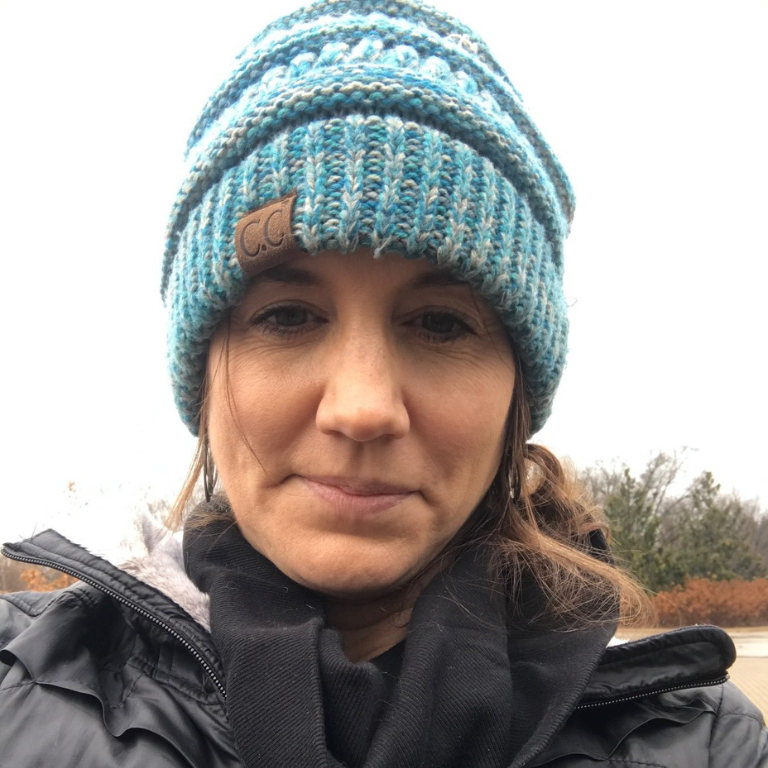Professor’s community outreach is a ‘shore’ thing
Living along one of the Great Lakes, it can be easy to take relaxing days on the beach for granted. But whether you’re enjoying a day at the Dunes or starting a business on the lakefront, the human impact on the shoreline affects everyone.
IU Northwest Professor of Geosciences Erin Argyilan is especially interested in spreading the word about these impacts. “My background is in studying lake levels and how the shoreline behaves in response to these changes,” she said. “Through my research, I began doing public talks to help explain why some parts of the shoreline were experiencing erosion more drastically than others.”
One of Argyilan’s latest speaking engagements was in August at the Great Lakes Coalition’s Annual Membership Meeting. The Great Lakes Coalition (GLC) is a Michigan non-profit that involves coastal property owners, mostly those who live and work along the eastern shore of Lake Michigan.
Argyilan said this group of stakeholders has been dealing with shoreline erosion and community advocacy for decades.
“Being the keynote for this meeting was significant and empowering because the science that was conveyed received traction with the community members,” Argyilan said. “It was great to see that by providing scientific research, stakeholders’ perspectives were furthered, which hopefully will result in action.”
At the GLC meeting, Argyilan had the chance to hear from community members directly affected by the changing shoreline. She also received policy perspectives from Michigan congressman Bill Huizenga, hearing about some of their legislative and funding efforts to help mitigate shoreline erosion.
“This Great Lakes Coalition meeting introduced me to homeowners, and everyone had their own personal story. It really gave me a different viewpoint on how we move forward to deal with these issues,” Argyilan said.
Among the biggest challenges for scientists and activists, like Argyilan, is to measure and explain the ongoing changes that the shoreline has experienced as a result of human structures and activities. It is difficult for people to understand that it is not just lake level that controls shoreline development, it is more about the rate of water level change along with the rate of sediment gain or loss in a given location.
“The last time lake levels were this high was during 1986-1987, and because of that, people forget. All these plans that were made and dollars put aside got shelved,” she said. “The problem hasn’t disappeared, and now, we’re coming to a point where we have to make some tough decisions because some areas are erosional hot spots. These locations are less resilient to year-to-year changes in lake level. In some areas we are starting to introduce the idea of retreating from the shoreline as the best long-term plan”
Shoreline strides
But that certainly doesn’t mean all hope is lost. Argyilan and others like her are making great strides in educating the public. She regularly gets IU Northwest students involved with her research through photo monitoring surveys, using geographic information systems, and field trips.
What’s more, Argyilan is working to expand her reach beyond the classroom. Currently, she’s putting together a workshop for teachers to help them educate students about the shoreline. Beyond that, she works closely with the park service and training interpreters.
Argyilan is more than happy to continue sharing the word about shoreline erosion and the human impact. She said the best part is seeing people begin to look at the world in a new way. “Northwest Indiana is a very unique place, because people’s lives are really connected to the natural resources of their region and they are passionate to learn,” she said. “I really want people to understand how they have to get involved in the decision-making process, especially shoreline issues for Northwest Indiana’s residents.”
Whether it’s speaking at a region-wide meeting or exploring these topics in class, Argyilan is making a massive difference by educating her community and advocating for Great Lakes conservation.
If you want to learn more about shoreline erosion, you can find some of her talks on YouTube or reach out to her directly at eargyila@iu.edu.
